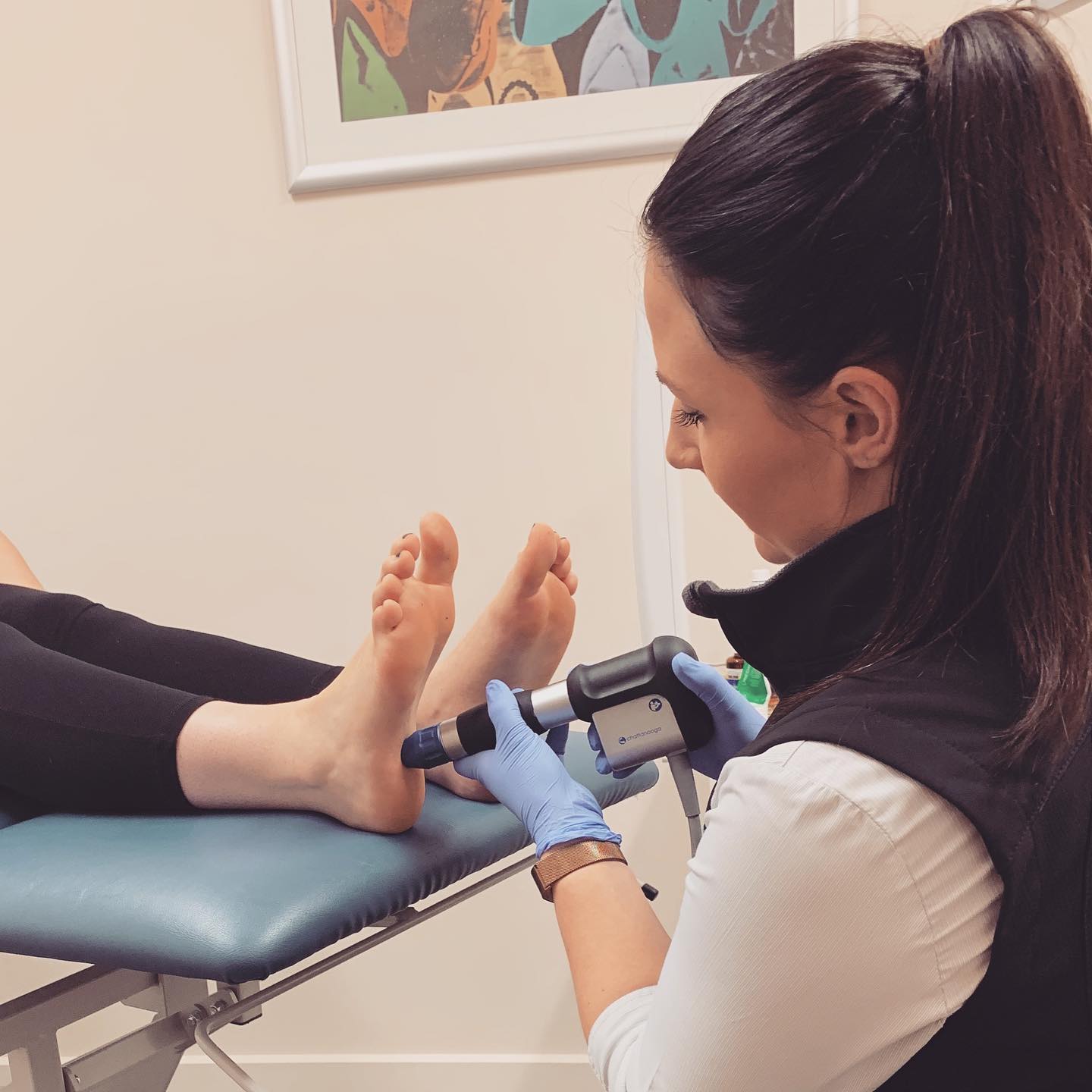Understanding the Importance of Choosing the Right Feet Doctors for Your Overall Health
In this fast-paced world, where we often prioritize urgent needs over long-term health, our feet are frequently neglected. It’s not uncommon for people to endure persistent foot pain, assuming it’s a minor issue that will resolve on its own. However, taking proper care of our feet is crucial to our overall health and well-being. Understanding the role of a podiatrist feet doctors, the signs that prompt a visit to one, and how to choose the right provider can make a significant difference in your health journey.
The Role of a Podiatrist
A podiatrist plays a vital role in diagnosing and treating conditions related to the foot, ankle, and related structures of the leg. These specialists are trained to identify various foot conditions, from common issues such as bunions and heel spurs to more complex conditions like diabetes-related complications and structural abnormalities. Podiatrists provide a wide range of treatments, including prescribing medications, setting fractures, conducting surgery, and fitting orthotic devices. Their expertise also extends to preventive care, helping patients maintain foot health and avoid future issues.
The distinction between podiatrists and other foot care providers lies in their training and scope of practice. While other health professionals like orthopedists or physical therapists may treat foot-related problems, podiatrists undergo extensive education specifically focused on foot and ankle medicine. This includes completing a four-year doctoral education in podiatry, followed by a residency program, equipping them with a unique and comprehensive understanding of foot health. Their specialized training enables them to address a broader spectrum of foot conditions and offer more targeted treatments than general healthcare providers.

Feet Doctors
Signs You Need to See a Podiatrist
Recognizing when to seek the expertise of a podiatrist can be the key to preventing minor issues from evolving into major health complications. Here are some significant signs indicating it’s time to consult a podiatrist:
- Persistent Pain: If you are experiencing continuous pain in your feet or ankles that persists for more than a few days, it’s essential to seek a podiatrist’s opinion. Persistent pain can indicate underlying conditions such as fractures, sprains, or arthritis.
- Changes in Foot Appearance: Any noticeable changes in the color, shape, or thickness of your feet or toenails should prompt a visit to a podiatrist. This includes swelling, red areas, or structural changes like flat feet which could signify more severe issues.
- Numbness, Tingling, or Loss of Sensation: Experiencing these sensations regularly, especially in one foot, might be a sign of neuropathy. Neuropathy can result from diabetes and other systemic diseases, requiring immediate attention from a podiatrist.
- Difficulty Walking or Performing Activities: If you notice changes in your ability to walk, stand, or engage in usual activities without discomfort, it’s crucial to consult a podiatrist. This could indicate problems with foot alignment, muscle strength, or joint issues.
- Skin or Nail Problems: Ingrown toenails, fungal infections, or any persistent skin and nail issues are best treated by a podiatrist. They can provide specialized care to resolve these problems effectively.
- Diabetes: Individuals with diabetes should have regular check-ups with a podiatrist as part of their care team. Diabetes can lead to severe foot problems, including infections and wounds that heal poorly, necessitating specialist attention.
If you’re encountering any of these signs, scheduling an appointment with a podiatrist should be a priority. Early intervention can mitigate serious complications, ensuring your feet remain healthy and functional.
How to Choose the Right Podiatrist
Choosing the right podiatrist is a critical step toward ensuring your foot health. Here are key factors to consider when making this important decision:
- Qualifications and Experience: Look for a podiatrist who has completed the requisite education and training, including a Doctor of Podiatric Medicine (DPM) degree and residency. Experience in treating conditions similar to yours is also vital.
- Specializations: Many podiatrists have areas of specialization such as sports injuries, diabetes-related foot care, or surgical interventions. Determining your specific needs can help you find a podiatrist with the right expertise.
- Reputation: Seek recommendations from your primary care physician, friends, or family members who have had positive experiences. Online reviews and testimonials can also provide insight into a podiatrist’s reputation and patient satisfaction levels.
- Communication Skills: Choose a podiatrist who communicates clearly and listens to your concerns. A good doctor-patient relationship is founded on mutual understanding and respect.
- Location and Accessibility: Consider the podiatrist’s office location and whether it is easily accessible. Additionally, check office hours to ensure they fit with your schedule.
- Insurance and Cost: Ensure the podiatrist accepts your health insurance plan to avoid unexpected expenses. Inquire about payment options for services not covered by insurance.
- Hospital Affiliations: A podiatrist affiliated with reputable hospitals may indicate a higher level of credibility and adherence to strict medical standards.
Taking the time to research and select the right podiatrist can lead to better health outcomes, more effective treatment plans, and a positive healthcare experience. Remember, your feet are the foundation of your mobility and overall well-being, making the choice of a podiatrist an important health decision.
The Importance of Regular Foot Check-Ups
Routine foot check-ups play a pivotal role in maintaining overall foot health and preventing the progression of minor issues into more severe complications. These check-ups allow podiatrists to detect early signs of foot conditions, such as fungal infections, bunions, or the onset of more systemic conditions like diabetes, which can have profound effects on foot health. Regular assessments can also identify changes in the foot’s structure or function that may not be immediately obvious to individuals but could lead to discomfort or mobility issues over time.
Beyond identifying potential problems, regular foot check-ups provide an opportunity for education on proper foot care practices. Podiatrists can offer personalized advice on footwear, hygiene, and exercises designed to enhance foot strength and flexibility, thereby reducing the risk of injury. For individuals with pre-existing conditions, such as diabetes, or those with demanding physical activities, regular check-ups are essential for monitoring and managing these conditions effectively.

Feet Doctors
Ultimately, incorporating foot check-ups into your healthcare routine is an investment in your overall health and quality of life. By ensuring your feet are in optimal condition, you’re taking a significant step towards maintaining mobility, independence, and a high standard of living as you age.
Common Foot Problems and How a Podiatrist Can Help
Foot problems can vary widely, from minor annoyances to issues that impair your quality of life. Understanding these common issues and how a podiatrist can help is essential for maintaining foot health and overall wellbeing. Here’s a closer look at several common foot problems:
- Plantar Fasciitis: This condition is characterized by pain in the heel or bottom of the foot, often felt most acutely with the first steps in the morning. A podiatrist can provide treatments such as orthotics, physical therapy, and in some cases, injections to alleviate pain and inflammation.
- Bunions: Bunions are bony protrusions at the base of the big toe and can cause pain and discomfort. Podiatrists may suggest footwear adjustments, orthotic devices, or, for severe cases, surgical correction to realign the toe.
- Athlete’s Foot: A fungal infection that leads to itching, redness, and cracking of the feet. Podiatrists can prescribe antifungal medications and offer advice on preventing re-infection.
- Ingrown Toenails: When the corners or sides of a toenail dig painfully into the skin, it can lead to infection. A podiatrist can perform a minor procedure to remove the ingrown portion of the nail safely and provide guidance on proper nail care to prevent recurrence.
- Diabetic Foot Care: For individuals with diabetes, even minor foot issues can lead to serious complications. Podiatrists play a crucial role in diabetic foot care, offering regular check-ups, treatment for wounds, and strategies to prevent infections.
- Hammertoes: This deformity causes toes to bend unnaturally, leading to pain and difficulty walking. Podiatrists may recommend splints, exercises, or surgery to correct the deformity and relieve discomfort.
By addressing these and other foot concerns promptly and effectively, podiatrists help patients avoid further complications, improve their quality of life, and keep them active and mobile.
The Connection Between Foot Health and Overall Well-Being
The intricate connection between foot health and overall well-being cannot be overstated. Feet, often taken for granted, play a fundamental role in our daily lives, supporting our body’s weight, enabling mobility, and influencing our balance and posture. When foot health is compromised, it can lead to a cascading effect on one’s total wellness. Pain or discomfort in the feet can alter walking patterns, leading to imbalances and strain on the legs, hips, and back. This misalignment may result in chronic pain, reduced mobility, and a diminished capacity for physical activity, which are critical components of a healthy lifestyle.
Furthermore, the condition of our feet can serve as a window to our broader health. For instance, persistent foot problems can be early indicators of systemic conditions such as diabetes, arthritis, and circulatory disorders. Identifying and addressing these signs early through foot care can prevent further health complications.
Good foot health also contributes positively to mental and emotional well-being. Limitations in mobility or chronic pain can affect one’s mental health, leading to feelings of frustration, anxiety, or depression. On the flip side, maintaining healthy feet supports an active lifestyle, facilitating engagement in social activities, exercise, and hobbies that boost mood and improve overall quality of life.
In conclusion, recognizing the connection between foot health and overall well-being underscores the importance of not neglecting foot care within our health care routine. Regular check-ups with a podiatrist, proper hygiene, comfortable footwear, and addressing foot problems promptly are all steps towards safeguarding not only our foot health but our total physical and mental wellness.
Tips for Maintaining Healthy Feet
Maintaining healthy feet requires consistent care and attention. Here are several practical tips to help keep your feet in top condition:
- Wear Proper Footwear: Choose shoes that fit well and provide adequate support for your foot’s arch and shape. Avoid wearing high heels or tight shoes for extended periods, as they can lead to bunions and other foot problems.
- Practice Good Hygiene: Wash your feet daily with soap and water, and make sure to dry them thoroughly, especially between the toes, to prevent fungal infections like athlete’s foot.
- Moisturize: Regularly apply a good quality foot cream or moisturizer to keep your skin from becoming dry and cracked, which can create an entry point for infections.
- Trim Nails Properly: To prevent ingrown toenails, trim your nails straight across and avoid cutting them too short or rounding the corners too much.
- Stay Active: Engaging in regular physical activity promotes good circulation in your feet, reducing the risk of swelling and other circulatory issues.
- Wear Clean Socks: Change your socks daily to keep your feet clean and dry. Opt for socks made of materials that wick moisture away from the skin.
- Rotate Your Shoes: Give your shoes time to air out and dry between wears by not wearing the same pair two days in a row, reducing the risk of bacterial or fungal growth.
- Avoid Walking Barefoot: In public areas, wear shoes to protect your feet from fungal infections and cuts.
- Check Your Feet Regularly: Inspect your feet for any changes, including cuts, sores, swellings, or discolored toenails. Early detection of foot problems can lead to simpler treatments.
- Visit a Podiatrist: Regular check-ups with a podiatrist can help prevent foot problems before they start. Don’t wait for pain to see a specialist, especially if you have health conditions like diabetes that increase your risk of foot complications.
Following these tips can help ensure your feet stay healthy, supporting your overall well-being and enabling you to remain active and mobile.

Feet Doctors
The Benefits of Seeking Professional Help for Foot Pain
The decision to seek professional help for foot pain is crucial, offering numerous benefits that contribute to enhanced mobility and overall quality of life. Consulting a podiatrist — a specialist in foot care — ensures accurate diagnosis and effective treatment plans tailored to individual needs. These specialists possess a deep understanding of the complexities of foot anatomy, as well as the numerous conditions that can affect the feet, providing them with the insight necessary to address both acute and chronic issues effectively.
One of the key benefits of professional foot care is the prevention of minor issues escalating into more severe complications. Early intervention can often resolve problems with minimal treatment, preventing the need for invasive procedures down the line. Additionally, podiatrists can offer personalized advice on lifestyle changes, footwear, and exercises that can improve foot health and prevent future pain or injuries.
For those suffering from ongoing conditions such as diabetes or arthritis, professional help is invaluable in managing symptoms and preventing foot-related complications. With a podiatrist’s guidance, patients can enjoy improved mobility, reduced pain, and a better quality of life. In essence, seeking professional help for foot pain not only addresses immediate concerns but also lays the foundation for sustained foot health, enabling individuals to maintain an active, fulfilling lifestyle.
In conclusion, maintaining healthy feet is essential for overall health and wellness. Paying attention to foot care, seeking professional help when needed, and making sensible lifestyle choices can go a long way in preventing foot problems and supporting an active, fulfilling life. Don’t neglect your feet – they are the foundation that supports you through all of life’s adventures. So take care of them, and they will take care of you.
Flagstaff Foot Doctors: Anthony Rosales DPM
https://www.google.com/maps?cid=8835841318590452161
421 N Humphreys St, Flagstaff, AZ 86001, United States
(928) 774-4825
https://flagstafffootandankle.com/
